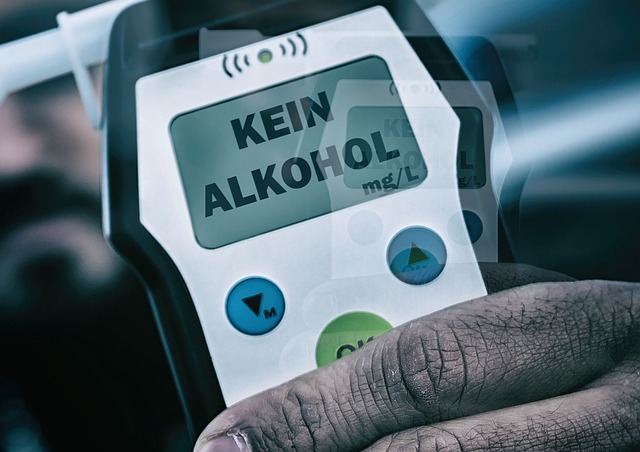Support groups are key to College Campus DUI Prevention, creating a culture of responsible drinking through peer accountability and education. These groups offer safe spaces for students to share experiences, learn about risks, and exchange strategies for navigating social situations safely, fostering a supportive community that prioritizes safety and personal growth. By integrating mental health programs, workshops, awareness campaigns, and partnerships with local support groups, campuses can holistically promote long-term recovery and prevent DUI incidents among college students.
In today’s digital era, understanding college campus DUI (drunk driving under influence) prevention is more crucial than ever. Support groups play a pivotal role in fostering recovery among students, offering a safe space for open dialogue and emotional support. This article explores the benefits of recovery support groups for college students, delves into effective group dynamics, and provides strategies to sustain long-term recovery within the campus community, with a focus on enhancing college campus DUI prevention efforts.
- Understanding College Campus DUI Prevention: The Role of Support Groups
- Benefits of Recovery Support Groups for Students
- Implementing Effective Group Dynamics for Positive Change
- Strategies to Sustain and Promote Long-Term Recovery within the College Community
Understanding College Campus DUI Prevention: The Role of Support Groups

In the context of college campus DUI prevention, support groups play a pivotal role in fostering a culture of responsible drinking and peer accountability. These groups provide a safe, non-judgmental space for students to share their experiences, struggles, and victories related to alcohol consumption and its potential consequences. By understanding the social dynamics and pressures unique to college life, support groups can offer valuable insights into why DUI incidents occur and equip students with strategies to make healthier choices.
Through regular meetings, members learn from one another, developing a collective consciousness about the risks associated with impaired driving. They exchange tips on how to decline drinks responsibly, navigate social situations, and seek help when needed. This peer-to-peer education is particularly effective in reaching and influencing young adults, addressing college campus DUI prevention head-on while also promoting a supportive community that values both safety and personal growth.
Benefits of Recovery Support Groups for Students

For students navigating the challenges of college life, recovery support groups offer a safe and supportive environment on the bustling college campus. These groups play a pivotal role in DUI prevention by fostering peer connections among students in recovery from substance abuse. By sharing experiences, strategies, and struggles openly, members gain valuable insights and motivation to maintain their sober lifestyle.
The benefits extend beyond individual recovery; support groups create a sense of community that strengthens resilience against the temptations and pressures often present on college campuses. They encourage active participation, teaching essential coping mechanisms and life skills. This collective approach not only assists students in their personal journeys but also contributes to a campus culture that prioritizes well-being and embraces healthy alternatives to high-risk behaviors like DUI.
Implementing Effective Group Dynamics for Positive Change

In the context of College Campus DUI Prevention, support groups like Recovery Together play a pivotal role in fostering positive change through effective group dynamics. These groups create a safe, supportive environment where individuals struggling with substance abuse can connect, share experiences, and learn from one another. Facilitators guide discussions, ensuring every member feels heard and valued, which encourages open communication and builds trust. By promoting active participation and peer mentorship, these support groups empower members to take ownership of their recovery journeys.
Implementing strategies tailored to the college setting further enhances the effectiveness of group dynamics. Incorporating interactive activities, case studies relevant to campus life, and guest speakers from diverse backgrounds can make meetings engaging and relatable. Moreover, leveraging technology for virtual meetings during busy periods ensures accessibility and continuity in support, fostering a sense of community even when members are dispersed. These approaches collectively contribute to creating a dynamic and inclusive atmosphere that drives positive change, especially when focused on preventing DUI incidents among college students.
Strategies to Sustain and Promote Long-Term Recovery within the College Community

Supporting long-term recovery among college students is a multifaceted approach that requires collaboration between various campus entities. One key strategy is to integrate mental health and wellness programs into the fabric of student life, ensuring accessibility and normalizing conversations around well-being. Educational workshops on topics like stress management, emotional regulation, and substance abuse prevention can empower students with tools to make informed decisions. Additionally, peer support networks can play a pivotal role by offering non-judgmental spaces for students in recovery to connect, share experiences, and foster a sense of community.
College campuses can also promote recovery through proactive initiatives like campus-wide awareness campaigns, highlighting the resources available for those struggling with addiction or mental health issues. Implementing policies that discourage harmful behaviors, such as strict no-tolerance rules for alcohol and drug abuse, especially in light of College Campus DUI Prevention efforts, is essential. Moreover, fostering partnerships with local support groups and rehabilitation centers can provide students with additional resources and a supportive network beyond the campus boundaries.
Support groups play a pivotal role in college campus DUI prevention by fostering a sense of community and offering a safe space for students to recover and rebuild. The benefits are clear: these groups enhance well-being, encourage positive change, and provide long-term strategies for sustainable recovery. By implementing effective group dynamics and employing diverse initiatives, colleges can sustain these programs and promote a culture of responsibility and resilience among their communities. Through collaborative efforts, we can significantly reduce DUI incidents on college campuses and empower students to make better choices.






